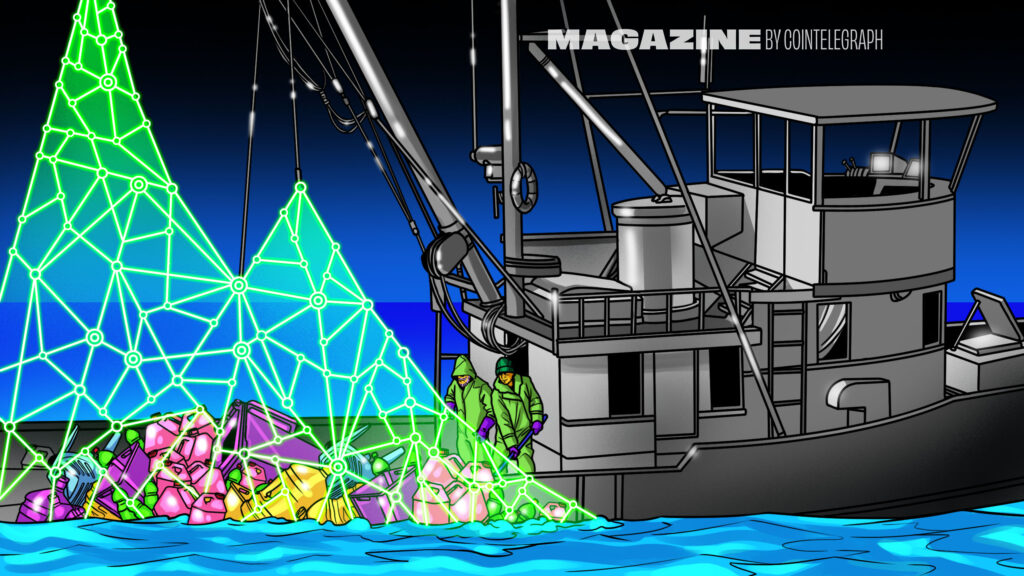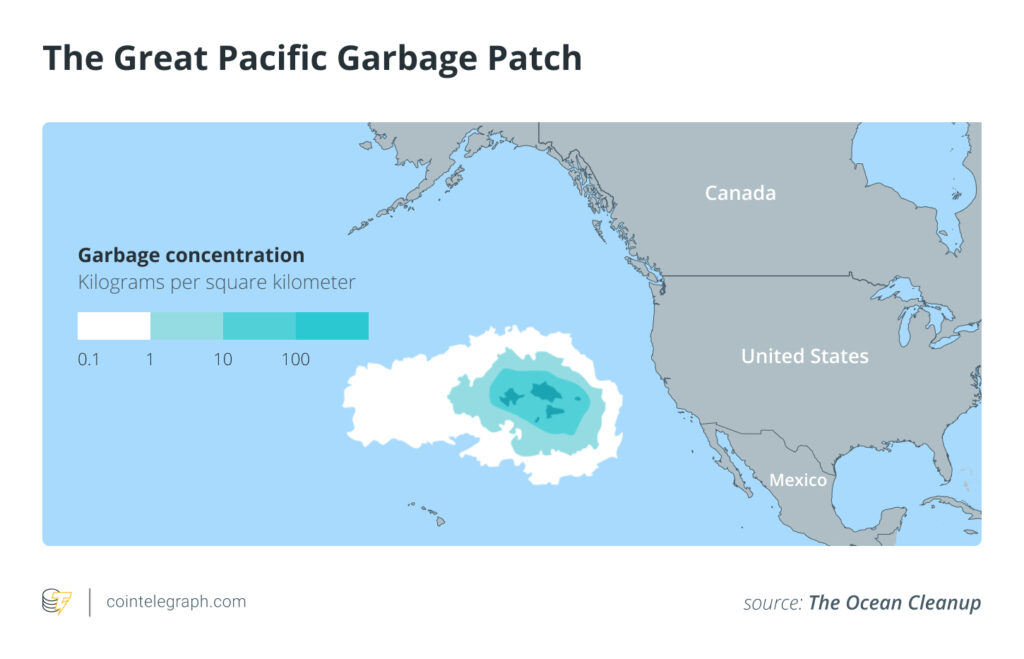Everything makes its way to the sea, and none more so than plastics. There are now five floating plastic islands in different oceans across the world, with the largest island even having a name, the Great Pacific Garbage Patch, which is three times the size of France. Lying between California and Hawaii, it is the world’s biggest ocean waste repository, with 1.8 billion pieces of floating plastic that kill thousands of marine animals each year.
Of course, we now know that 35% of waste originates from wealthy countries and 50% of this waste is exported to developing countries. At the same time, 70% of developing countries mismanage their own waste and lack the infrastructure to collect and recycle waste. Finally, 90% of all plastic waste enters the oceans through rivers, mostly through a few hundred rivers in Asia, Africa and Latin America.
Many projects have sprung up looking to tackle the problem of plastic pollution at the end of its journey. On Bitcoin Beach in El Salvador, one of the projects funded by Bitcoin philanthropists is the collection of plastics in the river before they reach the sea.
Plastiks.io is another project that addresses the end games, identifying credible recycling and cleanup projects typically in developing countries that are funded by business or philanthropic individuals in the west.
Canada-based Plastic Bank also works to incentivize stewards to collect plastic from the oceans and, to date, claims that its Ocean Stewards have stopped more than 64 million kilograms of plastic from entering the ocean.

In 2014 in Malaysia, students from Nottingham University, then led by a co-founder of DeFi app Alluo, Remi Tuyaerts, were involved in a number of social enterprise businesses, including one that uses black soldier flies to eat waste and another that converts plastic into beanbags employing the homeless. These businesses are still thriving.
In 2019, Manila Bay Beach in the Philippines was filled with so much plastic waste it earned the nickname “rubbish beach.” Then, within a couple of months, it was reclaimed in a major cleanup. Initially, 5,000 volunteers removed over 45 tons of garbage. Prior to the onslaught in 2018, Bounties Network paid fishermen to collect trash and rewarded them with tokens, and the continued payments helped fund fishermen’s precarious livelihoods and keep the beach clean.
Click Here to Read the Full Original Article at Cointelegraph.com News…
























